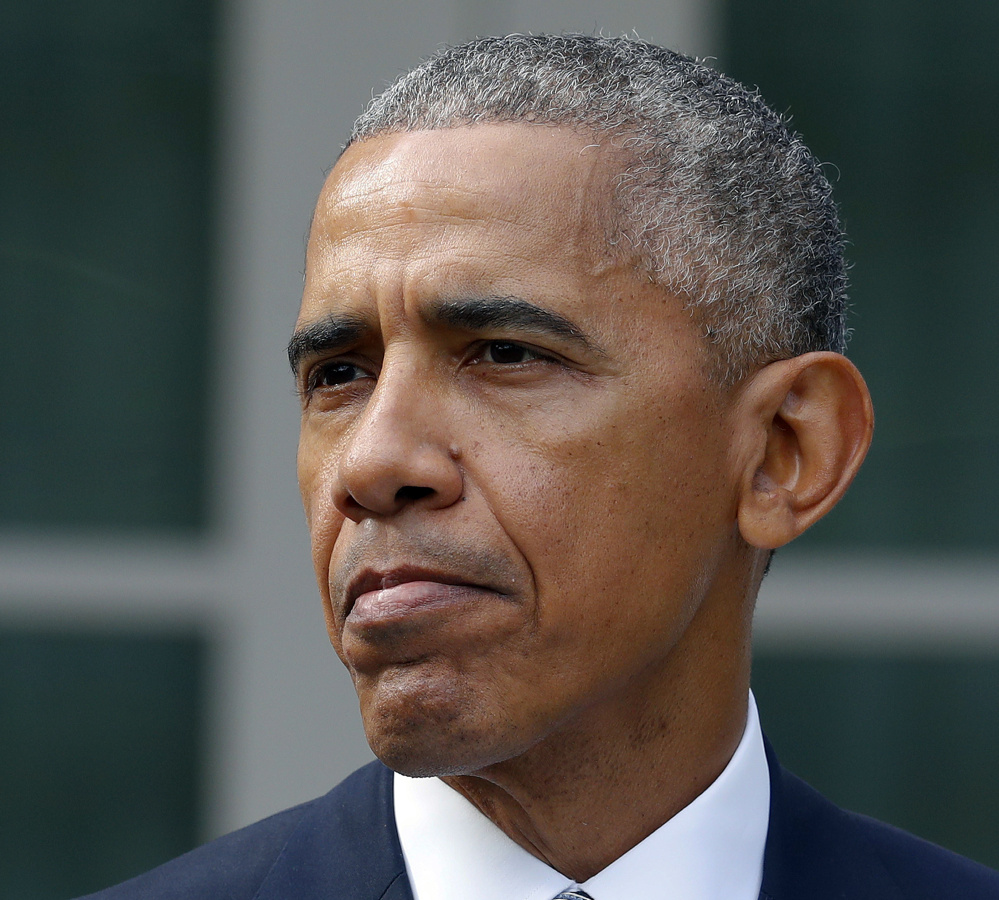WASHINGTON — President Obama on Monday heads for Europe and then South America to face world leaders wondering what to expect from the U.S. after he leaves office, and to deliver the only honest answer he has: He just doesn’t know.
Aides to the president have spent the last few days wrestling with what to say about President-elect Donald Trump on the global stage. A private one-on-one meeting in the Oval Office a few days ago between Trump and Obama did little to shed light.
As a result, Obama is planning simply to note Trump’s public commitment to work with him on a peaceful transfer of power, and to point to the historical precedent of U.S. presidents honoring longstanding alliances.
“Presidents in both parties have been committed to investing in those alliances,” White House press secretary Josh Earnest said. “That’s certainly what has happened in the past.”
Obama had hoped to be more specific when he first planned this trip months ago. Harboring a deep concern about the uncertain future of Europe, thrust into its own incendiary mix of a rise of nationalism amid an influx of millions of refugees, he wanted to use his final official foreign trip to reassure European allies and pledge support for shared policies.
At the time, he believed that Democrat Hillary Clinton would be elected to succeed him in the White House and that he’d be endorsing her plans to remain on the same foreign policy track after a long and divisive presidential campaign.
Trump’s election changed all that. The Republican president-elect has offered few details of his plans for dealing with the rest of the world even as he cast himself as an opponent of existing trade agreements, the Iran nuclear deal and much of Obama’s military strategy. He has said he prefers to keep adversaries guessing.
Of particular concern to the leaders of NATO-allied countries, many of whom Obama will meet with this week, is Trump’s profession of admiration for Russian President Vladimir Putin. The allies are at odds with Russia over its intervention in Ukraine, aggression in the Baltics and military support for Syrian President Bashar Assad in the yearslong civil war there.
“This trip was really meant to say, ‘You know, we went through it, but we’re going to be fine,’ ” said Heather Conley, director of the Europe program at the Center for Strategic and International Studies. “Now the president has the unenviable task of explaining.”
European leaders fear “the Trump effect,” she said, and “are very worried because the same populist, nationalist expressions, whether that’s on immigration, whether that is on free trade, has certainly been running very strong political currents within Europe.”
Obama doesn’t want to explain or speculate about Trump’s plans, one senior aide said. Nor does he want to speak disrespectfully of the president-elect in private meetings with world leaders who may be trying to figure out how to deal with or even manipulate the new head of state.
At the same time, Obama wants to be frank about the concerns and aspirations of Americans who elected Trump.
Copy the Story LinkSend questions/comments to the editors.



Success. Please wait for the page to reload. If the page does not reload within 5 seconds, please refresh the page.
Enter your email and password to access comments.
Hi, to comment on stories you must . This profile is in addition to your subscription and website login.
Already have a commenting profile? .
Invalid username/password.
Please check your email to confirm and complete your registration.
Only subscribers are eligible to post comments. Please subscribe or login first for digital access. Here’s why.
Use the form below to reset your password. When you've submitted your account email, we will send an email with a reset code.